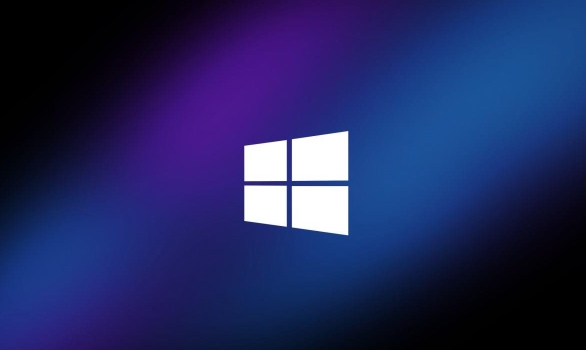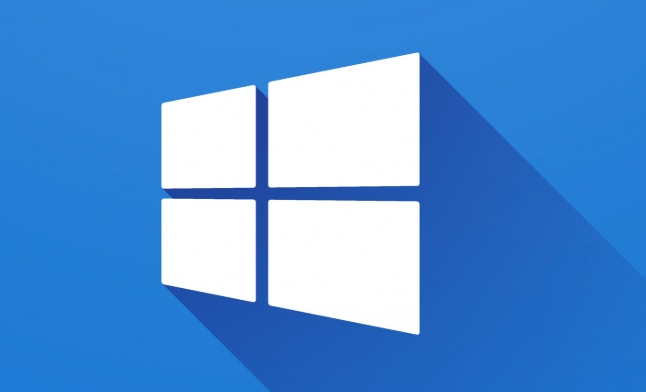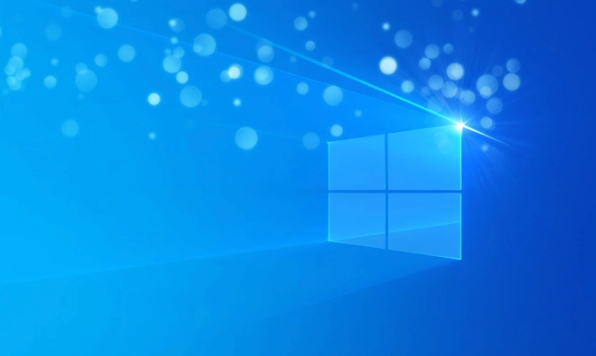Changing Windows 10's power plan can be achieved in a number of ways. 1. Switch the power plan in the control panel: Open "Control Panel → Hardware and Sound → Power Options", select the desired plan or click "Show Additional Plans" to see more. 2. Use system settings to modify the power mode: Go to "Settings → System → Power", which can quickly switch existing plans, but cannot customize advanced options. 3. Customize the power plan: Click "Change plan settings → Change advanced power settings" in "Power Options" to adjust parameters such as processor performance, hard disk sleep time and other parameters as needed. 4. Quick switch tips: Turn on the taskbar power icon to facilitate switching different power plans with one click. Just choose the appropriate method according to the usage scenario.

Changing Windows 10's power plan is actually not difficult. The key is to find the right setting location and select or adjust the plan according to your use scenario. The following are several common methods and precautions.

Switch power plan in control panel
This is the most traditional and intuitive way. You can follow the following steps:

- Open the Start Menu, enter Control Panel in the search box and open
- Go to Power Options under Hardware and Sound
- You will see the currently available power plans, such as "balance", "high performance", "energy saving", etc.
- Click the plan you want to use to complete the switch
If you don't see all the options, you can click "Show Additional Plans" in the upper right corner to expand more preset plans.
This method is suitable for most ordinary users, with a clear interface and simple operation.

Use system settings to modify the power mode (suitable for users who are used to modern interfaces)
The Windows 10 setup application also integrates some power management functions. Although it is not as comprehensive as the control panel, the daily switching plan is enough:
- Press
Win Ito open "Settings" - Go to "System" → "Power"
- There is a link to "Other Power Settings" at the bottom of the page. After clicking, you will jump to the control panel.
- If you just want to quickly switch existing plans, you can directly select from this page
Note: You cannot customize advanced options in the Settings app, you can only make basic switches.
Custom power plan meets specific needs
If you have special requirements for computer use, such as wanting to make your laptop more power-saving, or wanting your desktop to always maintain high performance, you can customize your power plan:
- Go to "Control Panel → Power Options"
- Click "Change Plan Settings" to the right of any existing plan
- Then click "Change Advanced Power Settings"
- Expand various settings (such as processor power management, hard disk sleep time, USB device energy saving, etc.), and adjust as needed
For example: If you often use a laptop to work but don’t want to plug in frequently, you can increase the “maximum performance status of the processor” in the “battery” state to balance battery life and performance.
Before adjusting, it is recommended to understand the role of each option first to avoid improper settings affecting the experience.
Quick Switch Tips: Taskbar Power Icon
If you often need to switch the power plan, you can set the power icon of the taskbar to facilitate one-click switching:
- Right-click the blank space of the taskbar → “Taskbar Settings”
- Find the Power switch below "Search" to make sure it is on
- Then you can see the power icon on the right side of the taskbar. After clicking, you can directly switch the power plan
This method is especially suitable for users who often switch between different usage scenarios, such as switching from mobile office to high-performance gaming mode.
Basically these are the methods. Just choose the right method according to your usage habits. You don’t need to change it every time, but understanding how to operate can save a lot of trouble at critical moments.
The above is the detailed content of How to change the power plan in Windows 10?. For more information, please follow other related articles on the PHP Chinese website!

Hot AI Tools

Undress AI Tool
Undress images for free

Undresser.AI Undress
AI-powered app for creating realistic nude photos

AI Clothes Remover
Online AI tool for removing clothes from photos.

Clothoff.io
AI clothes remover

Video Face Swap
Swap faces in any video effortlessly with our completely free AI face swap tool!

Hot Article

Hot Tools

Notepad++7.3.1
Easy-to-use and free code editor

SublimeText3 Chinese version
Chinese version, very easy to use

Zend Studio 13.0.1
Powerful PHP integrated development environment

Dreamweaver CS6
Visual web development tools

SublimeText3 Mac version
God-level code editing software (SublimeText3)
 Windows 11 slow boot time fix
Jul 04, 2025 am 02:04 AM
Windows 11 slow boot time fix
Jul 04, 2025 am 02:04 AM
The problem of slow booting can be solved by the following methods: 1. Check and disable unnecessary booting programs; 2. Turn off the quick boot function; 3. Update the driver and check disk health; 4. Adjust the number of processor cores (only for advanced users). For Windows 11 systems, first, the default self-start software such as QQ and WeChat are disabled through the task manager to improve the startup speed; if you use dual systems or old hardware, you can enter the power option to turn off the quick boot function; second, use the device manager to update the driver and run the chkdsk command to fix disk errors, and it is recommended to replace the mechanical hard disk with SSD; for multi-core CPU users, the kernel parameters can be adjusted through bcdedit and msconfig to optimize the startup efficiency. Most cases can be corrected by basic investigation
 How to Change Font Color on Desktop Icons (Windows 11)
Jul 07, 2025 pm 12:07 PM
How to Change Font Color on Desktop Icons (Windows 11)
Jul 07, 2025 pm 12:07 PM
If you're having trouble reading your desktop icons' text or simply want to personalize your desktop look, you may be looking for a way to change the font color on desktop icons in Windows 11. Unfortunately, Windows 11 doesn't offer an easy built-in
 Fixed Windows 11 Google Chrome not opening
Jul 08, 2025 pm 02:36 PM
Fixed Windows 11 Google Chrome not opening
Jul 08, 2025 pm 02:36 PM
Fixed Windows 11 Google Chrome not opening Google Chrome is the most popular browser right now, but even it sometimes requires help to open on Windows. Then follow the on-screen instructions to complete the process. After completing the above steps, launch Google Chrome again to see if it works properly now. 5. Delete Chrome User Profile If you are still having problems, it may be time to delete Chrome User Profile. This will delete all your personal information, so be sure to back up all relevant data. Typically, you delete the Chrome user profile through the browser itself. But given that you can't open it, here's another way: Turn on Windo
 How to fix second monitor not detected in Windows?
Jul 12, 2025 am 02:27 AM
How to fix second monitor not detected in Windows?
Jul 12, 2025 am 02:27 AM
When Windows cannot detect a second monitor, first check whether the physical connection is normal, including power supply, cable plug-in and interface compatibility, and try to replace the cable or adapter; secondly, update or reinstall the graphics card driver through the Device Manager, and roll back the driver version if necessary; then manually click "Detection" in the display settings to identify the monitor to confirm whether it is correctly identified by the system; finally check whether the monitor input source is switched to the corresponding interface, and confirm whether the graphics card output port connected to the cable is correct. Following the above steps to check in turn, most dual-screen recognition problems can usually be solved.
 Want to Build an Everyday Work Desktop? Get a Mini PC Instead
Jul 08, 2025 am 06:03 AM
Want to Build an Everyday Work Desktop? Get a Mini PC Instead
Jul 08, 2025 am 06:03 AM
Mini PCs have undergone
 Fixed the failure to upload files in Windows Google Chrome
Jul 08, 2025 pm 02:33 PM
Fixed the failure to upload files in Windows Google Chrome
Jul 08, 2025 pm 02:33 PM
Have problems uploading files in Google Chrome? This may be annoying, right? Whether you are attaching documents to emails, sharing images on social media, or submitting important files for work or school, a smooth file upload process is crucial. So, it can be frustrating if your file uploads continue to fail in Chrome on Windows PC. If you're not ready to give up your favorite browser, here are some tips for fixes that can't upload files on Windows Google Chrome 1. Start with Universal Repair Before we learn about any advanced troubleshooting tips, it's best to try some of the basic solutions mentioned below. Troubleshooting Internet connection issues: Internet connection
 How to clear the print queue in Windows?
Jul 11, 2025 am 02:19 AM
How to clear the print queue in Windows?
Jul 11, 2025 am 02:19 AM
When encountering the problem of printing task stuck, clearing the print queue and restarting the PrintSpooler service is an effective solution. First, open the "Device and Printer" interface to find the corresponding printer, right-click the task and select "Cancel" to clear a single task, or click "Cancel all documents" to clear the queue at one time; if the queue is inaccessible, press Win R to enter services.msc to open the service list, find "PrintSpooler" and stop it before starting the service. If necessary, you can manually delete the residual files under the C:\Windows\System32\spool\PRINTERS path to completely solve the problem.







